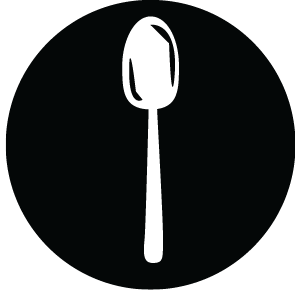When you think about holiday foods, you may think about eating turkey on Thanksgiving, trick or treating and consuming large quantities of candy on Halloween, or dining on green eggs and ham on St. Patrick's day. But did you know that in China, there are also special Chinese holiday foods that are meant to be eaten on specific days?
One of the reasons why Chinese holiday foods are so unique is that the dishes can have either a symbolic, literal, or historical meaning. What's even more intriguing is that these meanings are often related to wealth and future prospects, because Chinese traditions can be superstitious (eating certain foods or saying specific words can bring luck, while others can be unlucky).
To learn a little more about this interesting culinary culture, let's dive into the different Chinese holidays and explore the traditional holiday foods that are associated with each one.
Chinese New Year
Chinese New Year is by far the most festive holiday in China. Loved ones from all over the country will gather together to share a meal and enjoy being with family. Chinese New Year is also on January 1, however Chinese holidays aren't based on the more commonly used Gregorian calendar. They are actually based on the lunar calendar that follows the waxing and waning of the moon.
On Chinese New Year, one thing that Chinese people will eat is dumplings. Dumplings are supposed resemble the shape of the gold ingot currency that was used in ancient China, and people believe that eating dumplings on the first day of the year will bring about wealth and prosperity in the new year.

Another Chinese holiday food eaten on the first day of the new year is fish. A dinner table must have fish on Chinese New Year because there is a phrase in China, "年年有余," which means that there will be leftovers every year.
The Chinese believe that having leftovers, whether that means leftovers for lunch or leftover money, is a sign of being well off enough to the point of a little excess. Since the Chinese word for "leftovers" also sounds like the Chinese word for "fish," then eating fish will bring about leftovers in life.

Lastly, eating sticky rice cakes is also supposed to be lucky on Chinese New Year. The Chinese phrase for sticky rice cakes, "年糕” nian gao (nee-an gow), is pronounced similarly to the phrase "年年高", or nian nian gao (nee-an nee-an gow), which means to grow taller every year.
It's a tradition to eat sticky rice cakes on Chinese New Year, especially for the younger generation, who eat them in the hopes of growing taller as the year goes by. For the older generation, eating sticky rice cakes symbolizes achieving a higher position, whether that be in academics or financial status.

avlxyz on Flickr
Mid-Autumn Festival
The Mid-Autumn Festival, also known as the Moon Festival, is on August 15 of the lunar calendar, and it's a Chinese holiday on which people celebrate the moon and the passing of autumn. Because the holiday is based on the lunar calendar, the Mid-Autumn Festival always happens on a day when the moon is full, so the Chinese eat mooncakes to celebrate the moon and a traditional Chinese story that describes how a beautiful woman flew up to the moon by eating a special magical medicine.

Unsplash on unsplash
Mooncakes are a round moon-shaped pastry that have a thin exterior and a sweet, sticky filling. The most traditional filling flavors are sweet red bean, lotus, or nuts, but modern Chinese bakeries have expanded the list of fillings to include chocolate, ice cream, and green tea.
Lantern Festival
Known in Chinese as "元宵节” or yuan xiao jie (yoo-an sh-ow jee-ye), this Chinese holiday is marked by the 15th day of January on the lunar calendar, which also indicates the end of the Chinese New Year celebration. On this holiday, lanterns are hung all throughout Chinese cities and riddles are written on pieces of paper that hang from these lanterns for kids to try to solve.
On the day of the Lantern Festival, you are supposed to eat sticky rice balls, also known in Chinese as "汤圆” or tang yuan. These sticky rice balls, filled with sweet sesame or red bean filling, are boiled in water and enjoyed as a soup. The round shape of the pastry is supposed to symbolize the roundness and togetherness of family as the Chinese New Year celebrations wrap up.

CharlesWClark on Flickr
Dragon Boat Festival
On May 5 of the lunar calendar, the Chinese celebrate the Dragon Boat Festival by having rowing competitions with intricately crafted dragon-shaped boats. These celebrations are done to remember the death of an ancient Chinese poet and minister named Qu Yuan (Choo Yoo-an).
The story goes that he committed suicide by drowning himself in a lake. He was well-loved by the local people, and so after his passing they dropped sticky rice dumplings in the water to prevent the fish in the lake from eating Qu's body. This is why the Chinese eat sticky rice dumplings, or "粽子" zong zi, during the Dragon Boat Festival. This Chinese holiday food is a triangular block of sticky rice that can be filled with savory meat or sweet red bean and is wrapped and steamed in bamboo leaves.

avlxyz on Flickr
Each one of these traditional Chinese holiday foods represents a beloved historical event, or a hope for the future, but the best part about eating these special foods is enjoying it with family and friends. Each Chinese holiday is a chance to celebrate the importance of being with your loved ones, and to remember that being able to share dumplings or a mooncake with them is a privilege. In the end, what is the beauty of traditional holiday food if you can't share it with the people you love?



